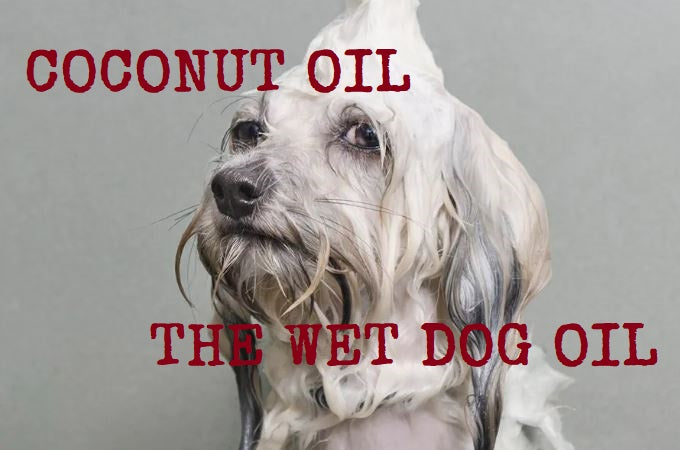
Coconut Oil, the wet dog oil in the room
Share
Coconut Oil, the wet dog oil! So what's the story with coconut oil, is it good or bad to use on your beard?
First coconut oil is a good ingredient, to a point. It does moisturize. It has antibacterial and antifungal properties. It's rich in vitamins and fatty acids. It's also helps with anti-inflammatory soothing of the skin. It's also beard chrome... it helps give your beard a healthy looking shine! We all want that freshly polished chromed out Harley look, right? Trust me the answer is yes!
So what gives, why is coconut oil bad?
Coconut oil is highly comedogenic, which means it can clog pores and potentially cause acne breakouts, especially for those with oily or acne-prone skin. If over used or the wrong ratio is used, it can leave a greasy residue on both skin and hair, which some people might find unappealing or uncomfortable. While it benefits some hair types, particularly dry or damaged hair, it can weigh down fine hair and make it look limp.
Although rare, some people may experience allergic reactions to coconut oil, resulting in redness, itching, or swelling. Overusing coconut oil can lead to buildup on the skin and hair, which might cause issues such as clogged pores or greasy hair.
Coconut oil can solidify at cooler temperatures, making it difficult to use and apply evenly in colder climates. Not a big deal breaker but it could be an issue for the northern states and The Canadians even further to the north.
Do you use heat to straighten your beard?
Down to the main reason coconut oil may not be the best fit as an ingredient in your beard care routine. Unpleasant Odor... yes that's a nice way to put it. When mixed with sweat and other environmental factors, coconut oil can develop an unpleasant odor, often described as a "wet dog smell." This can be off-putting and affect the overall fragrance of the beard oil. What magnifies the problem is heat. Heat intensifies odors! Applying heat to coconut oil can amplify any existing unpleasant odors. The heat can cause the oil to break down and release volatile compounds that contribute to the off smell.
Heat can accelerate the process of rancidity in oils. Coconut oil, when heated repeatedly, can degrade more quickly, leading to a more pronounced and unpleasant odor. The combination of heat and the natural acids in coconut oil can lead to chemical reactions that produce foul-smelling byproducts. These reactions can result in an even stronger and more offensive scent.
Sweat Interaction, heat from the brush can cause sweating, which mixes with the coconut oil. This mixture can enhance the "wet dog smell" as the sweat interacts with the oil, creating a more noticeable and unpleasant odor.

Residue buildup caused by the use of heated brushes can cause the coconut oil to spread unevenly and penetrate deeper into the beard hair and skin. This can lead to a buildup of residue that, when reheated, continues to emit an unpleasant smell over time. For these reasons, using a heated brush with coconut oil-treated beards is not recommended. Instead, opt for beard oils with more heat-stable and odor-neutral alternatives like jojoba oil, argan oil, meadowfoam seed oil, or sweet almond oil to avoid these issues.
To be fair, not everyone has issues with coconut oil.
Some people never pick up on the adverse effects of coconut oil use. That's the great thing about so many different blends of beard oils, there is something for everyone. Find an oil that works best for your beard. The oil here at Bayard Bear and Body is designed to be balanced, making it more on the quicker absorption side of carrier blends. A balanced oil gives your beard the oils in all the needed categories. This also promotes the scent profiles we use and leads to a better feel in beard that people receive!














